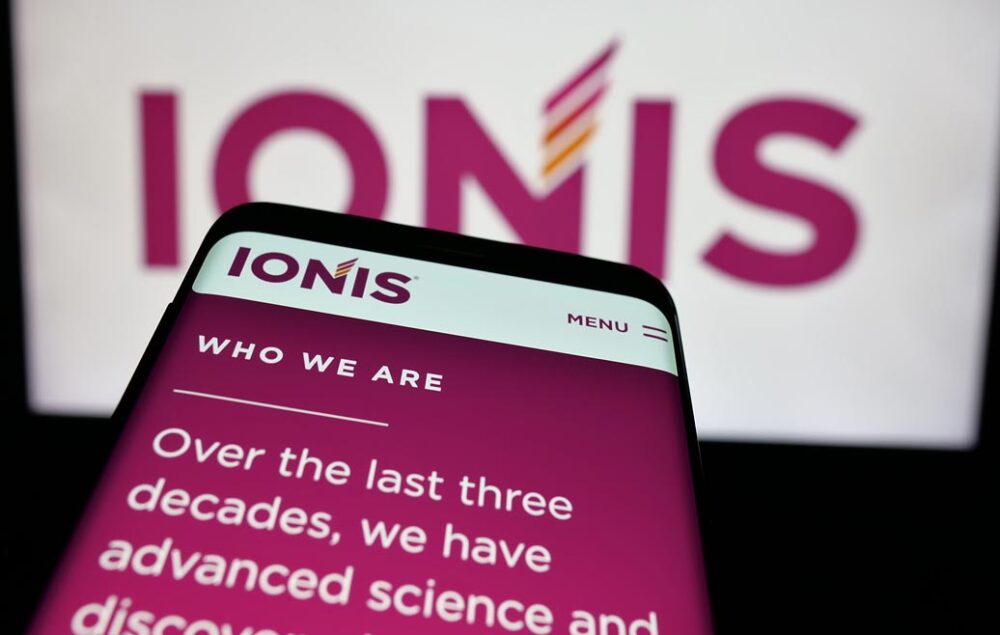Advertisment
FDA approves Tryngolza (olezarsn) as an adjunct to diet to reduce triglycerides in adults with familial chylomicronemia syndrome – Ionis Pharma

Ionis Pharmaceuticals, Inc. announced that the FDA has approved Tryngolza (olezarsen) as an adjunct to diet to reduce triglycerides in adults with familial chylomicronemia syndrome (FCS), a rare, genetic form of severe hypertriglyceridemia (sHTG) that can lead to potentially life-threatening acute pancreatitis (AP). Tryngolza is the first-ever FDA-approved treatment that significantly and substantially reduces triglyceride levels in adults with FCS and provides clinically meaningful reduction in AP events when used with an appropriate diet (≤20 grams of fat per day). Tryngolza is self-administered via an auto-injector once monthly.
“Today’s FDA approval of Tryngolza heralds the arrival of the first-ever FCS treatment in the U.S. – a transformational moment for patients and their families. For the first time, adults with FCS can now access a treatment that substantially reduces triglycerides and the risk of debilitating and potentially life-threatening acute pancreatitis,” said Brett P. Monia, Ph.D., chief executive officer, Ionis. “We are proud of our long-standing partnership with the FCS community and are grateful to the patients, families and investigators who participated in our clinical studies, enabling Ionis to make this new treatment a reality. The FDA approval of Tryngolza is also a pivotal moment for Ionis, representing our evolution into a fully integrated commercial-stage biotechnology company – a goal we set out to achieve five years ago. With our rich pipeline of potentially life-changing medicines, we expect Tryngolza to be the first in a steady cadence of innovative medicines we will deliver independently to people living with serious diseases.”
The FDA approval was based on positive data from the global, multicenter, randomized, placebo-controlled, double-blind Phase III Balance clinical trial in adult patients with genetically identified FCS and fasting triglyceride levels ≥880 mg/dL. In the Balance study, Tryngolza 80 mg demonstrated a statistically significant placebo-adjusted mean reduction in triglyceride levels of 42.5% from baseline to six months (p=0.0084). Reductions from baseline to 12 months were further improved, with Tryngolza achieving a placebo-adjusted 57% mean reduction in triglycerides. Tryngolza also demonstrated a substantial, clinically meaningful reduction in AP events over 12 months; one patient (5%) experienced one episode of AP in the Tryngolza group compared with seven patients (30%) who experienced 11 total episodes of AP in the placebo group.
Tryngolza demonstrated a favorable safety profile. The most common adverse reactions (incidence >5% of Tryngolza -treated patients and at a >3% higher frequency than placebo) were injection site reactions (19% and 9%, respectively), decreased platelet count (12% and 4%, respectively) and arthralgia (9% and 0%, respectively).
Results from the Phase III Balance study were previously published in The New England Journal of Medicine (NEJM).
“With no treatment options previously available, we were limited to relying only on extremely strict diet and lifestyle changes as the sole preventative treatment option,” said Alan Brown, M.D., FNLA, FACC, FAHA, clinical professor of medicine, Rosalind Franklin University of Medicine and Science; Balance trial investigator. “The FDA approval of Tryngolza is an important moment for people living with FCS, their families and physicians who now, for the first time, have a treatment that significantly lowers triglycerides and decreases the risk of potentially life-threatening acute pancreatitis events, as an adjunct to a low-fat diet. I am excited to have a medicine I can prescribe to my patients that has been shown to change the course of their disease.”
FCS is a rare, genetic, potentially life-threatening form of sHTG that prevents the body from breaking down fats and severely impairs the body’s ability to remove triglycerides from the bloodstream due to an impaired function of the enzyme lipoprotein lipase (LPL). While healthy levels for adults are below 150 mg/dL, people with FCS often have triglyceride levels of more than 880 mg/dL and often have a history of pancreatitis. Those living with FCS have a high risk of potentially fatal AP, which is a painful inflammation of the pancreas, and chronic health issues such as fatigue and severe, recurrent abdominal pain. People living with FCS can also experience psychological and financial stress, which can significantly impact their quality of life. In the U.S., FCS is estimated to impact up to approximately 3,000 people, the vast majority of whom remain undiagnosed.
“As a rare and difficult to diagnose disease, FCS has a profound impact on the lives of patients and families. Many people living with FCS have experienced severe pain their whole lives – sometimes so intense they require lengthy hospitalization stays – and struggle through life with daily fatigue, nausea, brain fog and stomach pain,” said Lindsey Sutton Bryan, co-founder and co-president, FCS Foundation. “Until now, our treatment options have been limited, relying on diet alone to try to manage triglyceride levels and keep acute pancreatitis attacks at bay. For the first time, adults with FCS have seen their hope for a treatment become a reality.”
Tryngolza will be available in the U.S. before year end.
Citations; VOL. 390 NO. 19 May 16, 2024 Olezarsen, Acute Pancreatitis, and Familial Chylomicronemia Syndrome. E.S. Stroes and Others N Engl J Med 2024;390:1781-1792.
- VOL. 390 NO. 19 May 16, 2024 Olezarsen for Hypertriglyceridemia in Patients at High Cardiovascular Risk. B.A. Bergmark and Others N Engl J Med 2024;390:1770-1780





